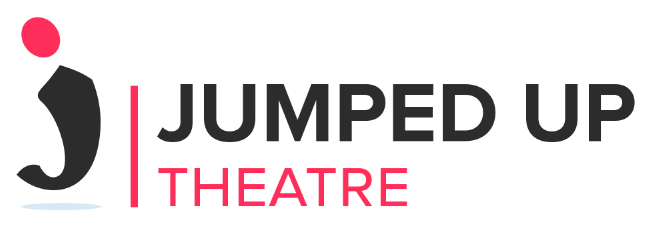Identity
/a think piece by Eva, Peterborough Youth MP and member of the Jumped Up Theatre Sound Board
If our identities were houses, each aspect of us would be a room: we should never be forced to keep any door locked.
Politicians and public figures are supposed to be accountable and transparent: since I became Youth MP for Peterborough, I’ve stood up for this over all else.
But the word ‘transparency’ scares me.
If our identities were houses, we’d show everyone around us the immaculately manicured front room only, terrified that anyone might see inside the rooms we keep locked. The aspects of us that just don’t fit with the image we want to portray.
I’ve had warnings from people close to me, urging me to be cautious about how I come across in public. And I’m not talking about being professional. People who tell me they will love me no matter what have urged me to hide aspects of my identity. ‘Don’t give them a reason to hate you,’ they say- well, not in so many words, but I can tell that’s what they really mean.
Whether it stems from others or even our own brains, we are all victims of identity policing. We are all forced to keep certain rooms of our houses, aspects of our identities, out of the public view, for fear of criticism.
Why are we so terrified of others seeing our full selves? If we all feel this pressure, why do we continue to endure it, to silently mask up each morning?
Our education keeps those secret doors locked. We are forced to choose a pinnacle ambition while we are still children. We build our GCSE options, our extracurricular interests, our social circles and our entire universes around a “dream job”- an archetype- where any incongruent or contradictory trait we may have is seen as deviant, a waste of time. If you want to be a doctor, there’s no space to be an artist. There’s no space to be a human: from here on, you are no more than a worker in the making.
Our ‘carers’ keep doors locked. Our social class and income leave us branded as soon as we start education, sifted on sight by the way we look, dress and speak. They tell us that we can be anything… any option listed on a drop-down menu of ‘good’ jobs. Our parents have ‘hopes’ for us, regardless of what we are called to: sometimes, we have no choice but to choose being a good child over being us. In order to be grateful for our gifts, in order to make our parents and teachers proud, we have to pretend to be someone else. No amount of adoration can stop that from hurting: would they stop loving us if they realised ‘our’ ambitions were a lie?
Our own peers’ prejudices keep doors locked. No matter what the influencers are saying, we have still not reached a stage where it’s okay to be different. Homophobia, racism, religious discrimination, classism and ableism are real and they hurt: perhaps it’s better- safer- to keep doors shut, to put on a façade detached from the reality of us. It’s even worse if two rooms in your house contrast- or conflict. Young people are already pushed to the edges of society, only to open one locked door and find a reason why even the other outcasts don’t want us. The temptation to reject experimentation out of fear we’ll lose the little acceptance we already have crushes our curiosity.
When young people think about exploring our identities, it’s terrifying. We risk failure, disappointment, isolation, hate crime and violence. Every time we share a new part of us with the world, everything is at stake. Those secret interests, tiny intrigues and burning questions make us vulnerable. It feels as though each move we make is under a spotlight, under a microscope. Member of Parliament or not, I feel as though I’m balancing on a tightrope.
No matter what’s behind each and every door in the houses of ourselves, each room should be free to explore, to protect or to display. If success is attached to an archetype, a character whose mask we put on every morning, it’s not real success.
Right here, right now, the world is opening up once more. I’m not calling for immediate absolute openness two seconds after noting we’re at risk of hate crime- as revolutionary and vibrant as we are, that would be unrealistic. What I am calling for is a rejection of the identity police in our own minds. It’s time to reclaim our identities, house by house, so we can take this on as a city.
Let’s throw open locked doors, embrace our colourful contradictions and change the air of old expectations.

